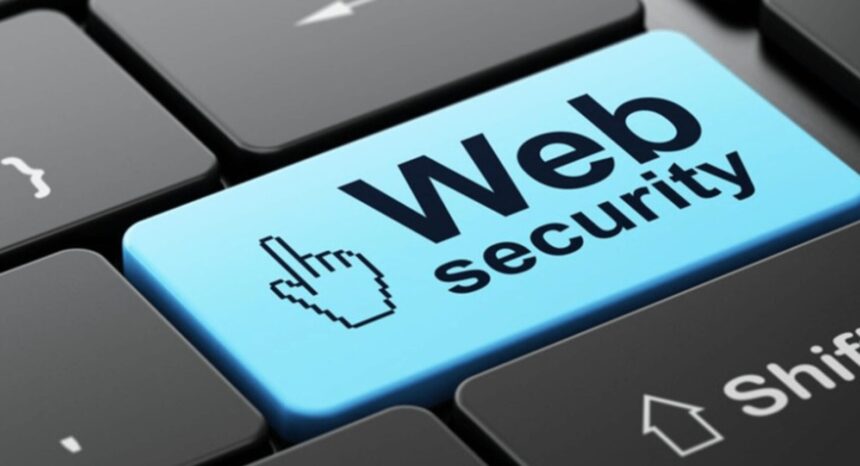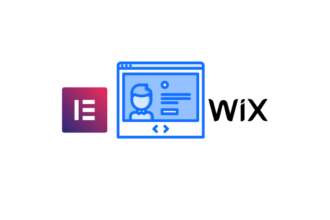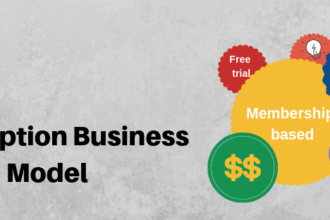How to Secure Your Website Against Cyber Threats in Nigeria
Nigerian business owner, blogger, or entrepreneur! If you’ve got a website, whether it’s a small online store selling dresses or a blog sharing Naija recipes, you’re part of Nigeria’s booming digital scene. With over 150 million internet users in Nigeria and e-commerce platforms like Jumia and Konga thriving, the online space is buzzing. But here’s the not-so-fun part: cybercriminals are eyeing your website too. From phishing scams to hackers trying to steal customer data, cyber threats are real, and Nigeria’s been hit hard, ranking among Africa’s top 10 targets for cyberattacks in 2024. Don’t worry, this guide is here to help you lock down your website like a pro, with practical, budget-friendly steps tailored for Nigeria. Let’s dive in and secure your digital hustle TODAY!
- How to Secure Your Website Against Cyber Threats in Nigeria
- Why Website Security Is a Big Deal in Nigeria
- Step 1: Understand the Cyber Threats in Nigeria
- Step 2: Choose a Secure Hosting Provider
- Step 3: Install an SSL Certificate
- Step 4: Keep Your Software Updated
- Step 5: Use Strong Passwords and Two-Factor Authentication (2FA)
- Step 6: Install a Security Plugin or Firewall
- Step 7: Regular Backups Are Your Safety Net
- Step 8: Protect Against Phishing and Social Engineering
- Step 9: Secure Your Payment Systems
- Step 10: Optimize for Local SEO and Security
- Step 11: Educate Yourself on Nigeria’s Data Protection Laws
- Step 12: Monitor and Respond to Threats
- Common Mistakes to Avoid
- Advanced Tips for Nigerian SMEs
- Budget-Friendly Tools (Naira Costs)
- Measuring Success
- Getting Started TODAY: A 24-Hour Plan
- Conclusion
Why Website Security Is a Big Deal in Nigeria
Picture this: you’ve spent months building your online store, and one day, boom your site’s down, customer data’s stolen, or worse, your Paystack payments are redirected to a scammer’s account. Sounds like a nightmare, right? That’s what cyber threats can do. In Nigeria, where SMEs and startups are driving the digital economy, hackers love targeting businesses with weaker defenses. A 2024 Sophos report flagged ransomware, phishing, and DDoS attacks as top threats here. If your website gets compromised, you could face:
- Lost Revenue: Customers won’t shop on a hacked site.
- Damaged Reputation: Nobody trusts a business that leaks data.
- Legal Trouble: Nigeria’s Data Protection Regulation (NDPR) means you’re responsible for safeguarding customer info.
- Recovery Costs: Fixing a hacked site can cost thousands of Naira.
But don’t panic! Whether you’re running a WordPress blog or a Shopify store, this guide will walk you through simple, actionable steps to keep your website safe, even on a tight budget.
Step 1: Understand the Cyber Threats in Nigeria
Before you start securing your site, let’s get a handle on what you’re up against:
- Phishing Scams: Fake emails or WhatsApp messages trick you into sharing login details. For example, a scammer might pose as your hosting provider, asking for your password.
- Malware: Malicious software can infect your site, stealing data or redirecting users to scam pages.
- DDoS Attacks: Hackers overload your site with traffic, crashing it. This is common during high-traffic events like Black Friday sales.
- Brute Force Attacks: Bots try thousands of password combinations to break into your site.
- SQL Injections: Hackers exploit weak code to access your database, especially on WordPress sites.
In Nigeria, SMEs are prime targets because many lack robust security. But with the right moves, you can stay one step ahead.
Step 2: Choose a Secure Hosting Provider
Your website’s hosting provider is like the foundation of your house—if it’s shaky, everything collapses. In Nigeria, local hosting companies like Whogohost and Upperlink are popular, but you can also use global providers like SiteGround or Bluehost. Here’s what to look for:
- SSL Certificates: Ensure your host offers free SSL (look for “https://” in your URL). This encrypts data between your site and users.
- Regular Backups: Choose a host that backs up your site daily or weekly.
- Server Security: Look for providers with firewalls, malware scanning, and DDoS protection.
- Uptime Guarantee: Aim for 99.9% uptime to keep your site accessible.
Action TODAY: Check your hosting plan. If it doesn’t include SSL or backups, switch to a provider like Whogohost (plans start at ₦5,000/year) or SiteGround (₦9,600/month at ₦1,600/USD).
Step 3: Install an SSL Certificate
An SSL certificate is non-negotiable. It encrypts data, protects customer info, and boosts your Google ranking. Most Nigerian hosting providers like Whogohost offer free SSL via Let’s Encrypt, but you can also buy one for ~₦10,000-₦50,000/year from providers like GoDaddy.
How to Check: Visit your site and ensure the URL starts with “https://” and shows a padlock. If not, contact your host or install a free SSL via cPanel.
Action TODAY: Log into your hosting dashboard and enable a free SSL certificate. It takes 5 minutes!
Step 4: Keep Your Software Updated
Outdated software is a hacker’s best friend. Whether you’re using WordPress, Shopify, or Joomla, updates patch security holes. In Nigeria, WordPress powers over 40% of SME websites, making it a prime target.
- Update Your CMS: For WordPress, go to Dashboard > Updates and install the latest version.
- Update Plugins and Themes: Outdated plugins are a common entry point for hackers.
- Check Your Hosting: Ensure your host updates server software like PHP.
Action TODAY: Log into your website’s admin panel and update your CMS, plugins, and themes. Set updates to automatic if possible.
Step 5: Use Strong Passwords and Two-Factor Authentication (2FA)
Weak passwords like “password123” or “naija2025” are an open invitation to hackers. In Nigeria, where brute force attacks are common, strong passwords are a must.
- Create Strong Passwords: Use a mix of letters, numbers, and symbols (e.g., “Naija#Secure2025!”). Avoid personal info like your name or business name.
- Use a Password Manager: Tools like LastPass (free) or 1Password (~₦4,800/month) store complex passwords securely.
- Enable 2FA: Add an extra layer of security with 2FA, requiring a code sent to your phone or email. Most platforms like WordPress and Shopify support 2FA via plugins or settings.
Action TODAY: Change your website admin password to something strong and enable 2FA via a plugin like Wordfence (free) or Google Authenticator.
Step 6: Install a Security Plugin or Firewall
For WordPress users, security plugins are a lifesaver. They block malicious traffic, scan for malware, and alert you to threats. Popular options include:
- Wordfence: Free plan with firewall and malware scanning (~₦160,000/year for premium).
- Sucuri: Malware removal and firewall (~₦320,000/year).
- iThemes Security: Free basic protection with 2FA and login monitoring.
For non-WordPress sites, use a Web Application Firewall (WAF) like Cloudflare (free plan or ~₦32,000/month for pro).
Action TODAY: Install Wordfence (free) on your WordPress site or set up Cloudflare’s free plan for any website.
Step 7: Regular Backups Are Your Safety Net
A backup can save your site if it’s hacked or crashes. In Nigeria, where power outages or unstable internet can disrupt operations, backups are extra important.
- Manual Backups: Download your site’s files and database via cPanel or FTP.
- Automated Backups: Use plugins like UpdraftPlus (free) for WordPress or your host’s backup service.
- Store Securely: Save backups on Google Drive or an external drive, not just your hosting server.
Action TODAY: Set up UpdraftPlus to back up your WordPress site to Google Drive (free) or check your host’s backup options.
Step 8: Protect Against Phishing and Social Engineering
Phishing scams are rampant in Nigeria, often targeting SMEs via fake emails or WhatsApp messages. For example, a scammer might send an email pretending to be Paystack, asking for your login details.
- Train Yourself and Staff: Never share login info via email or WhatsApp. Verify requests directly with the provider.
- Use Secure Email: Set up business email with Google Workspace (~₦9,600/month) or Zoho Mail (free for 5 users) to reduce spam.
- Check URLs: Hover over links to ensure they lead to legitimate sites (e.g., “paystack.com” not “paystak-ng.com”).
Action TODAY: Check your email for suspicious messages and mark them as spam. Set up a business email if you’re using a personal one.
Step 9: Secure Your Payment Systems
If your website accepts payments—say, via Paystack or Flutterwave—security is critical. Nigeria’s fintech boom has made payment gateways a hacker target.
- Use Trusted Gateways: Stick to reputable providers like Paystack (~2% per transaction) or Flutterwave.
- Enable PCI Compliance: Ensure your site meets Payment Card Industry (PCI) standards for secure transactions.
- Monitor Transactions: Watch for unusual activity, like multiple failed payment attempts.
Action TODAY: Verify your payment gateway is PCI-compliant and enable transaction alerts in Paystack or Flutterwave.
Step 10: Optimize for Local SEO and Security
In Nigeria, local SEO helps your website rank for searches like “Lagos hair salon” or “Abuja tech store.” But SEO and security go hand-in-hand—Google penalizes hacked or unsecured sites.
- Use HTTPS: Ensures secure data transfer and boosts SEO.
- Add Local Keywords: Include terms like “Nigeria,” “Lagos,” or “Naija” in your content.
- List on Directories: Add your site to VConnect or Nigeria Business Directory.
- Monitor SEO: Use Google Search Console (free) to check for security issues like malware warnings.
Action TODAY: Sign up for Google Search Console and check your site for security flags.
Step 11: Educate Yourself on Nigeria’s Data Protection Laws
The Nigeria Data Protection Regulation (NDPR) requires businesses to protect customer data. Non-compliance can lead to fines or legal issues.
- Secure Customer Data: Encrypt forms and databases using SSL or plugins like WPForms.
- Add a Privacy Policy: Include a policy on your site explaining how you handle data. Use free templates from Termly.io.
- Get Consent: Add cookie consent pop-ups for GDPR/NDPR compliance.
Action TODAY: Create a privacy policy using Termly.io and add it to your website’s footer.
Step 12: Monitor and Respond to Threats
Cybersecurity isn’t a one-time fix—it’s ongoing. Use these tools to stay vigilant:
- Google Alerts: Set alerts for your brand name to catch suspicious activity (e.g., fake sites mimicking yours).
- Security Plugins: Wordfence or Sucuri send real-time alerts for threats.
- Website Uptime Monitors: Tools like UptimeRobot (free) notify you if your site goes down.
Action TODAY: Set up a Google Alert for your business name and install UptimeRobot.
Related Article:
Winning Zero-Click Searches: SEO Strategies for Nigerian Brands in 2025
Common Mistakes to Avoid
- Skipping Updates: Outdated software is a hacker’s playground.
- Weak Passwords: Don’t use “naija2025” or your business name.
- No Backups: Without backups, a hack could wipe out your site.
- Ignoring NDPR: Failing to protect customer data can lead to fines.
- Neglecting Monitoring: You won’t know you’re hacked until it’s too late.
Advanced Tips for Nigerian SMEs
- Use a CDN: Cloudflare’s free plan speeds up your site and adds security.
- Hire a Local Expert: Engage Nigerian cybersecurity firms like Cybervergent for audits (~₦50,000-₦200,000).
- Leverage WhatsApp: Use WhatsApp Business (free) to communicate securely with customers.
- Test Your Site: Use tools like Sucuri SiteCheck (free) to scan for vulnerabilities.
- Stay Informed: Follow Nigeria’s CERT (ngCERT) for cyber threat updates.
Budget-Friendly Tools (Naira Costs)
- Free Tools: Cloudflare, Wordfence, Google Search Console, UptimeRobot.
- Low-Cost Tools: SiteGround (
₦9,600/month), Sucuri (₦320,000/year), Paystack (~2% per transaction). - Local Options: Whogohost (~₦5,000/year for domains), Flutterwave for payments.
Measuring Success
Track these KPIs to ensure your site is secure:
- Uptime: Aim for 99.9% (check via UptimeRobot).
- Security Alerts: Zero malware or hack warnings in Google Search Console.
- Customer Trust: Monitor sales or form submissions for growth (e.g., 10% monthly increase).
- Compliance: Ensure NDPR adherence with a privacy policy and secure forms.
Action TODAY: Review your site’s security status in Google Search Console.
Getting Started TODAY: A 24-Hour Plan
- Morning: Check your hosting for SSL and backups. Switch to Whogohost if needed (~₦5,000/year).
- Midday: Update your CMS, plugins, and themes.
- Afternoon: Install Wordfence (free) and enable 2FA.
- Evening: Set up a privacy policy with Termly.io and add it to your site.
- Night: Create a Google Alert and sign up for UptimeRobot.
Conclusion
Securing your website in Nigeria doesn’t have to be overwhelming or expensive. By choosing a reliable host, enabling SSL, using strong passwords, and staying NDPR-compliant, you can protect your business from cyber threats. Start with one step TODAY, like installing a security plugin or setting up backups, and build from there. Your customers will trust you more, and your business will thrive in Nigeria’s vibrant online space.
Image source: Wedoflow.com






